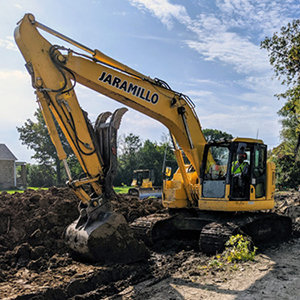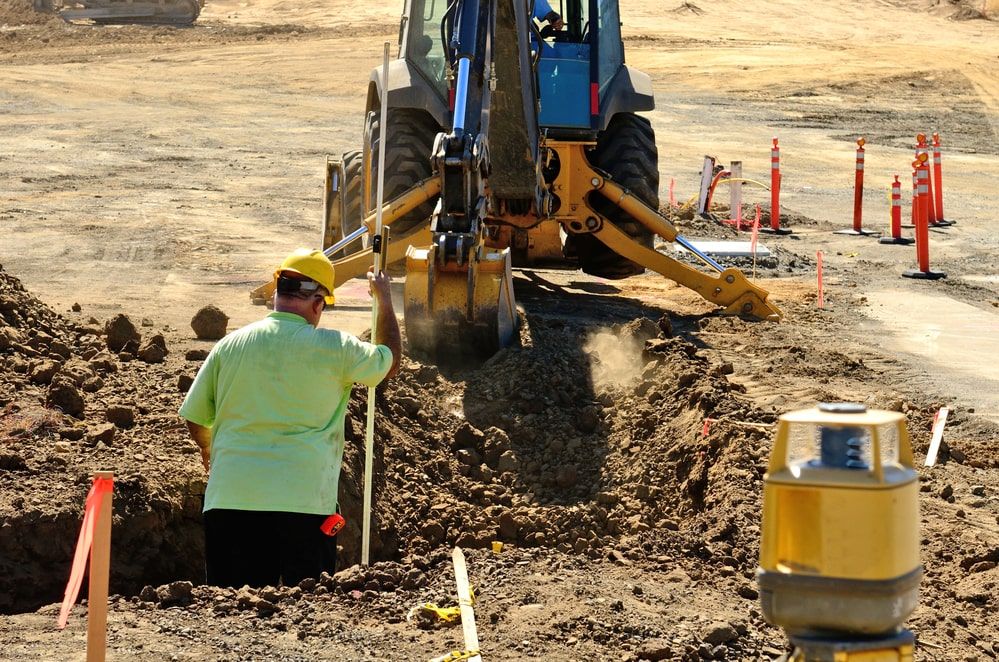Residential Excavating Ohio - Specialized Excavation for Ohio Residences
Wiki Article
Comprehensive Excavation Techniques: Understanding the Fundamentals for Success
The careful planning, precise execution, and precise focus to detail needed in excavation projects require a detailed technique that incorporates different essential facets. The true mastery exists not just in recognizing these principles but in seamlessly integrating them to navigate the complexities of excavation projects with skill.Comprehending Excavation Job Preparation

The first phase of any kind of excavation task is the preparation stage, where essential choices are made that can significantly influence the end result of the job. Comprehending the job spending plan, timeline, and extent constraints is critical for creating a comprehensive excavation strategy that makes sure the project's success.
One secret aspect of excavation job preparation is the advancement of a detailed timeline that outlines the sequence of tasks, due dates, and landmarks. This timeline acts as a roadmap for the job team, enabling them to track development and make necessary changes to ensure the job remains on timetable. In addition, a distinct spending plan that represents all expenses, including tools leasing, labor costs, and products, is necessary for avoiding cost overruns and hold-ups. By very carefully thinking about all these variables during the planning stage, excavation tasks can be executed effectively and effectively, resulting in successful outcomes.
Dirt Analysis and Site Evaluation
Conducting thorough soil evaluation and site analysis is a critical action in the prep work stage of any excavation task. Soil evaluation involves identifying the make-up, framework, and residential properties of the soil at the excavation website. This details is vital for comprehending the soil's bearing capacity, moisture web content, and possibility for erosion, which are crucial factors in determining the excavation approaches and tools required for the task.Site evaluation goes beyond dirt analysis and includes a more comprehensive analysis of the overall website conditions. This analysis includes identifying any kind of possible risks, such as below ground utilities, environmental worries, or unstable terrain, that can affect the excavation process. By completely evaluating the website, project supervisors can establish effective excavation techniques that focus on security, performance, and environmental management.
Utilizing sophisticated modern technologies like ground-penetrating radar, soil sampling, and drone studies can boost the accuracy and performance of dirt evaluation and website evaluation. Investing time and sources in these preliminary actions can ultimately conserve time and stop pricey delays or difficulties throughout the excavation procedure.
Equipment Choice and Usage
Efficient excavation tasks rely greatly on strategic equipment choice and use to make certain ideal efficiency and performance. Choosing the appropriate equipment for the work is critical in optimizing effectiveness and reducing downtime. Aspects such as the kind of dirt, depth of excavation, and job scope play a considerable role in determining the most ideal equipment for the task at my response hand.
Along with choosing the suitable equipment, proper application is key to project success. Operators needs to be educated to take care of the devices securely and successfully - lancaster excavation. Routine upkeep checks and timely fixings aid avoid break downs and make certain consistent efficiency throughout the project
Precaution and Regulations Compliance
In the world of excavation jobs, prioritizing precaution and compliance with regulations is extremely important to guaranteeing a legally audio and safe functional setting. Precaution incorporate a range of techniques, consisting of carrying out thorough website evaluations, implementing correct signs and barriers, and supplying ample security training for all personnel associated with the excavation procedure. Adherence to regulations, such as OSHA demands in the USA, ensures that the excavation project meets the necessary standards to secure workers, bystanders, and the surrounding setting.
Surveillance Progression and Adjusting Methods
Just how can forecast managers properly track the innovation of excavation jobs and adjust their approaches accordingly to maximize results? Surveillance development is important for ensuring that excavation projects remain on track and satisfy deadlines. Job managers can use various devices and techniques to track progression, such as everyday report card, normal website examinations, and progressed tracking innovations like drones and GPS tracking systems. By continually checking the task's improvement, managers can identify any type of prospective delays or problems at an early stage and take proactive measures to resolve them.
Verdict
In verdict, grasping the principles of thorough excavation approaches is important for the success of any type of task. By recognizing task planning, evaluating soil and site conditions, choosing appropriate tools, abiding by safety regulations, and keeping an eye on progress, project supervisors can ensure a smooth and effective excavation procedure. content Executing these methods will certainly result in successful end results and lessen prospective dangers or setbacks during the excavation job.
The initial stage of any excavation job is the planning stage, where vital choices are made that can substantially affect the result of the project. Recognizing the project budget, scope, and timeline restraints is essential for creating a thorough excavation plan that makes certain the job's success.
Just how can predict managers efficiently track the development of excavation projects and adjust their approaches appropriately to maximize outcomes? By carefully keeping an eye on progress and being eager to adjust methods, project managers can improve the overall success of excavation projects.
By comprehending task preparation, examining dirt and site conditions, selecting ideal devices, abiding with safety and security policies, and checking development, project managers can make certain a effective and smooth excavation procedure.
Report this wiki page